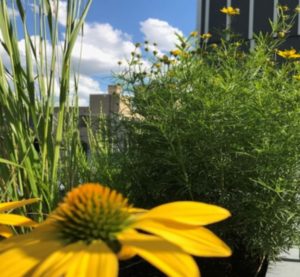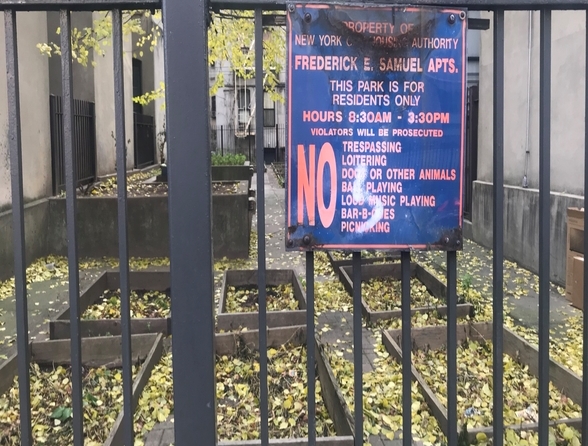As we repurpose vacant lots (whether legally through land leasing or through the anarchistic greening of sprawling dead spaces) we should think of what it means to extend our community of spatial residents beyond our own species to the worms, wildflowers, birds, and other denizens of the urban biota — who by their very presence invoke the possibility and potential of a living, adaptive, and resilient environment.
There are three different levels of access in which a green design-build professional will find themselves: Closed, Intracommunity, and Intercommunity:
- A closed project is one that we do for individuals (a residential backyard or rooftop space for example);
- An intracommunity project is a community space planned and designated for a specific living community (while outsiders are permitted depending on the organization’s policy);
- An intercommunity project involves a space open to multiple interacting communities, such as a park (and has its own rules of access written within it).
 While much excitement around urban gardens in the public imagination has focused on increasing access of vegetables and fruits to low-income residents — the potential of repurposed lots for stormwater management, native plant restoration, and wildlife habitat should not be ignored.
While much excitement around urban gardens in the public imagination has focused on increasing access of vegetables and fruits to low-income residents — the potential of repurposed lots for stormwater management, native plant restoration, and wildlife habitat should not be ignored.
The key to building accessible inter-community spaces is sustained engagement by involved stakeholders and a level of autonomy to define the purpose and identity of the space by those that engage with it regularly.
There is a place for inspired outsiders that want to contribute to positive urban greening projects, while leadership from within the community seems imperative for long-term success.
The right balance between informal democratic decision-making processes and an established political body charged with management will differ on a case-by-case basis.
Photos courtesy of Plant Group, LLC.
See full article by Austin Arrington in Community Supported Agriculture.

